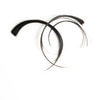|
That moisturizer your friends swear by left your face red and scaly. The cleaner you've been using for years to make your bathroom sparkle made your hands itch and burn.
For some people, the chemicals in shampoos, cosmetics, and detergents can trigger allergic skin reactions. Causes These reactions -- what your doctor calls allergic contact dermatitis -- happen when your immune system overreacts to chemicals that are normally harmless. They can be in products you're exposed to over and over, like cleaners, colognes, hair dyes, and personal care items. Even if you've used them before, you can still have a reaction. Cosmetics and personal care products have a lot of potential allergens, things you could be allergic to:
Symptoms Your skin is one of the first places where the warning signs can show up. They often appear 24 to 48 hours later, but can start as late as a week after you come in contact with the irritating chemical. Each person may have different chemical allergy symptoms. Some of the most common are:
The symptoms tend to be worst where you touched the thing you're allergic to. If you get the allergen on your finger and then touch another part of your body, like your face or neck, you can set off an allergic reaction there. Other conditions can cause similar symptoms, so see your doctor to find out what the problem is. Diagnosis Often your doctor may be able to diagnose your allergy by doing a physical exam and asking you about your symptoms. Sometimes, they may suggest you see an allergist for a skin test, also called a patch test. The allergist places small samples of chemicals on your back and checks to see if you get a rash. Keep track of your symptoms. It will help your doctor make a diagnosis. Note details such as:
Treatment You'll want to identify and avoid the chemical that seems to cause your allergic reaction. If you do come into contact with it, wash your skin with soap and water as soon as possible. If you have the allergen on your hands, don't touch other parts of your body until you've washed your hands. It may help to take off and wash any clothes or jewelry that might have come in contact with the irritating chemical. If you use nail care products, make sure the product has dried before you touch your skin. Got a mild reaction? You can sometimes treat symptoms yourself with over-the-counter medications such as calamine lotion, antihistamines, or cortisone ointments. See your doctor if you have frequent or severe outbreaks. They can help you find out why it happens and give you prescription medications if you need them. Hair by Brian - The Beauty Blog
Comments are closed.
|
Hair by BrianMy name is Brian and I help people confidently take on the world. CategoriesAll Advice Announcement Awards Balayage Barbering Beach Waves Beauty News Book Now Brazilian Treatment Clients Cool Facts COVID 19 Health COVID 19 Update Curlies EGift Card Films Follically Challenged Gossip Grooming Hair Care Haircolor Haircut Hair Facts Hair History Hair Loss Hair Styling Hair Tips Hair Tools Health Health And Safety Healthy Hair Highlights Holidays Humor Mens Hair Men's Long Hair Newsletter Ombre Policies Procedures Press Release Previous Blog Privacy Policy Product Knowledge Product Reviews Promotions Read Your Labels Recommendations Reviews Scalp Health Science Services Smoothing Treatments Social Media Summer Hair Tips Textured Hair Thinning Hair Travel Tips Trending Wellness Womens Hair Archives
June 2025
|
|
Hey...
Your Mom Called! Book today! |
Sunday: 11am-5pm
Monday: 11am-6pm Tuesday: 10am - 6pm Wednesday: 10am - 6pm Thursday: By Appointment Friday: By Appointment Saturday: By Appointment |

 RSS Feed
RSS Feed